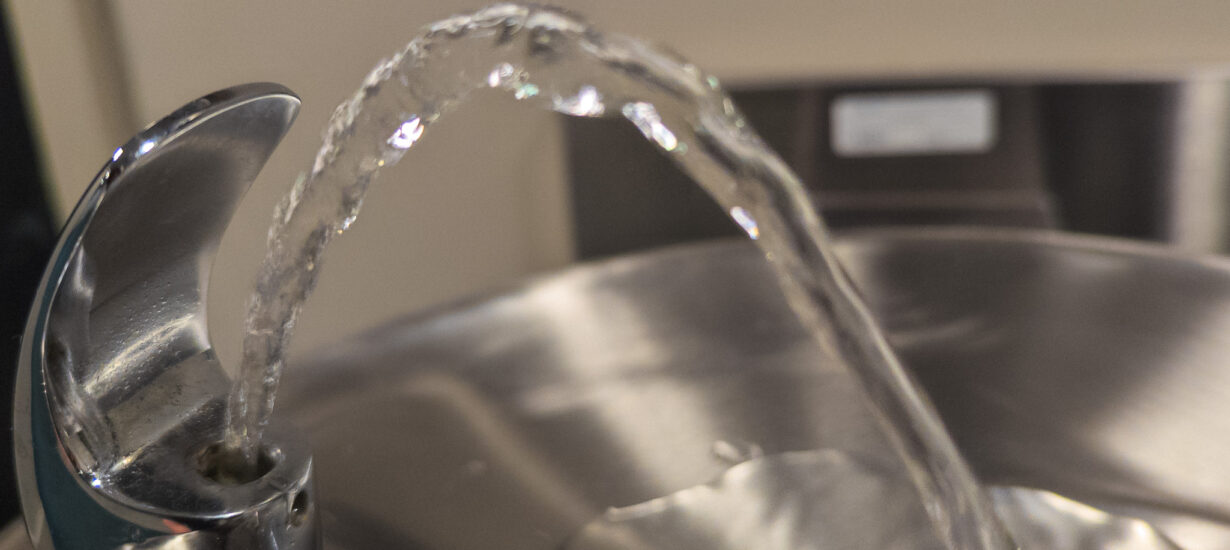UNC to Repair Water Fixtures Testing Positive for Lead

The University announced it has completed the testing of all water fixtures on campus for lead, a process that began in August 2022 after the metal was found in the water drawn from drinking fountains in Wilson Library. The Environment, Health and Safety department will now begin fixing the water sources that had any detectable level of lead.
EHS, with help from student volunteers, tested a total of 3,876 fixtures — sinks, drinking fountains, ice machines and other sources — in 260 buildings, according to an analysis of a database the EHS maintains. The department found 3,435 fixtures had no detectable levels of lead, or 89 percent of all sources tested. EHS identified 441 water sources had some trace of lead, of which 43 fixtures had levels above 15 parts per billion, the threshold at which the Environmental Protection Agency requires public water systems to take action to remedy the situation. (View the Review’s interactive map showing which campus buildings had fixtures that tested positive and negative for lead.)
During the testing, EHS removed from service water fixtures that were found to have any detectable trace of lead and posted warning signs. The department plans to fix or replace fixtures that had a detectable level of lead.
“There is no safe level of lead,” Rebecca Fry, director of the Institute for Environmental Health Solutions, told The Well, the University’s newsletter, in October. Fry is also the Gillings School of Public Health faculty expert who advised EHS officials on the mitigation process.
In 2007, the University detected lead in water fixtures in Caudill Labs, Chapman Hall, the Information Technology Service building and Campus Y, and occupants were told to stop drinking the water, the Carolina Alumni Review reported. About a month later, restrictions were lifted. The source was found to be lead leaching from brass fixtures.
UNC’s campus receives its tap water from the Orange Water and Sewer Authority (OWASA), which draws its water supply from the Cane Creek and University Lake watersheds.
EHS posts notifications and test results on its Drinking Water Lead Testing Results webpage and updates are posted on the EHS’ Twitter account @unc_ehs. The testing process followed four phases. Phase one involved water fixtures that potentially contained lead components based on their age and construction. In phase two, EHS tested water fixtures in buildings that were built in or prior to 1930, followed by phase three, in which EHS tested fixtures in buildings built in or prior to 1990. Phase four involved sampling of some buildings constructed after 1990.
EHS officials said they will conduct lead testing every three years in drinking fixtures in buildings built prior to 2014, which follows the 2014 revision of the lead-free definition for plumbing fixtures outlined in the Safe Drinking Water Act.
EHS plans to re-test drinking fixtures that had detectable levels of lead within one year after fixing each source, including fixtures that were repaired or replaced this past year.
EHS plans to continue testing drinking fixtures for lead in newly constructed buildings prior to occupancy, and testing will be conducted on drinking fixtures that are the subject of water quality complaints.
The University has been providing free blood-lead-level testing to faculty, staff and students who work, live or study in the affected buildings. According to EHS, at this time, no one has received a result exceeding the normal values of healthy people. Beginning April 30, Campus Health will begin billing student’s insurance for blood-level testing. The University Employee Occupational Health Clinic also will no longer offer free blood testing for staff and faculty after April 30.
For testing before April 30, students and post-doctoral fellows can contact Campus Health at (919) 966-2281. Faculty and staff can contact UEOHC at (919) 966-9119. After April 30, students and post-doctoral fellows can call (919) 966-2281. Faculty and staff should contact their primary care physicians.
